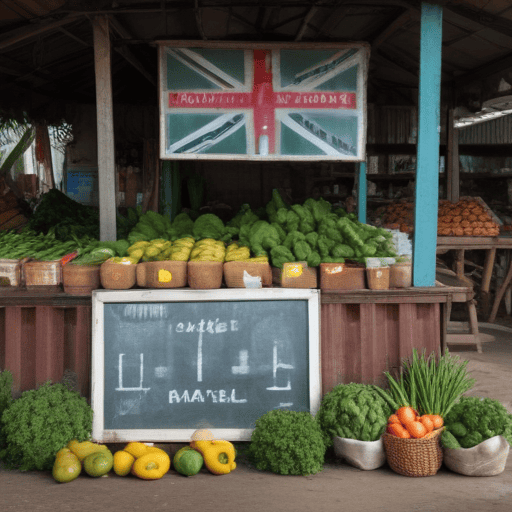Vendors at the Lautoka Market continue to grapple with significant challenges, as 38 of them remain without stalls during the ongoing construction of a new market facility. This situation has persisted for years, indicating a long-standing issue regarding stall allocation that dates back to at least 1991. Originally, vendors were relocated to temporary accommodations at a car park while awaiting the completion of the new market, but many are still struggling to establish their businesses due to insufficient stall distribution.
Makareta Rika, president of the Lautoka Market Vendors Association, has been vocal about the unfair allocation practices that appear to favor wealthier vendors, leaving poorer sellers without essential spaces to sell their goods. Rika expressed her frustration over the inadequate facilities at the temporary site, pointing out the lack of basic amenities such as water and electricity. Despite recent efforts by municipal workers to address some of these issues, the vendors remain uncertain about their ability to resume operations under current conditions.
Long-time vendor Ram Nand, who has served at the market for 15 years, echoed these concerns, stating that he, along with many others, has not received any allocated stalls since their relocation. The absence of proper infrastructure, including covers for stalls, further complicates their ability to conduct business. Rika emphasized the urgency of the situation, warning that, “At the rate things are being done, the vendors cannot start business by tomorrow.”
This ongoing struggle is reflective of broader challenges faced by vendors in other regions, such as the recent redevelopment efforts at the Suva Western Bus Stand. In Suva, vendors have expressed both optimism and concern regarding equitable stall allocations amidst ongoing renovations.
There remains hope for the Lautoka market vendors. The visibility of their plight could prompt stakeholders to reassess allocation strategies and push for equitable solutions that create a supportive marketplace for all vendors. Collaborative discussions among community leaders may drive the necessary reforms to improve conditions and foster a thriving vendor environment that benefits everyone involved.
In summary, while the situation for Lautoka vendors appears challenging, there is an opportunity for constructive change. Engaging stakeholders in discussions about fair allocation and essential infrastructure can pave the way for a more inclusive marketplace that uplifts all vendors, encouraging economic growth and community resilience in the process.

Leave a comment